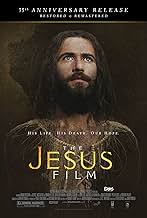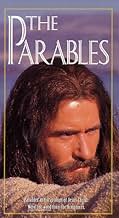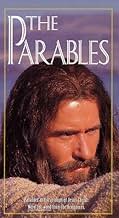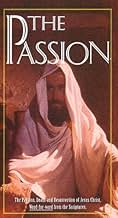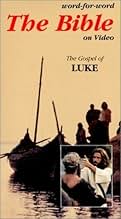Here in the Bible belt of the United States, particularly in our Southern Baptist churches, when you say the name "Jesus Christ," most of us envision such a person as Brian Deacon, who stars as the title character of "Jesus" (1979). The plot of "Jesus" is generally well-known even by non-believers. The opening scene displays John 3:16-17 from the King James Version. Though the film claims to be entirely from The Gospel of St. Luke, it also mixes elements from Matthew's Gospel (i.e.: a more complete Lord's Prayer said by Christ and the use of the trinitarian baptismal formula).
Sadly, the acting in "Jesus" is almost as wooden as the oil-painted icons of the Eastern Church. Brian Deacon delivers a sort of solemn, meek interpretation of Jesus of Nazareth--making the scene in which he casts out the money-changers from the temple--look as if he is only frustrated, and not righteously angry. However, in the film's defense, the acting in "Jesus" is much more a product of its time in that this was generally accepted as to how Jesus acted.
"Jesus" is perhaps one of the greatest films ever made, not because of its production values or acting, but because of its content. This 80-minute film, translated into God knows how many languages, has communicated the Gospel to millions all across the globe. "Jesus," the forerunner of such films as "The Gospel of John" (2003) and "The Passion of the Christ" (2004), is one of the finest examples of evangelical film-making. Recommended for everyone.



